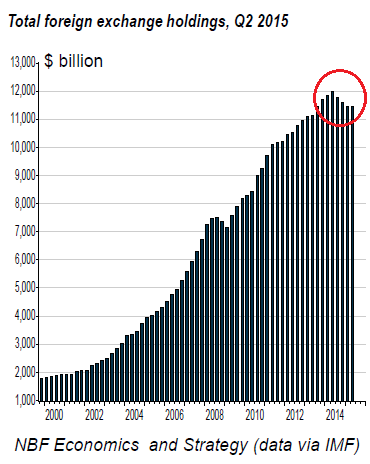She said IMF staff had determined that the yuan meets the requirements of being a “freely usable” currency, “which is defined as being ‘widely used’ for international transactions and ‘widely traded’ in the principal foreign exchange markets.”
China also overcame other hurdles the IMF had put before it, after numerous reforms to liberalize its currency and credit markets and offer more transparency. The IMF’s Executive Board has the final say, but Lagarde will chair the meeting. And the rubber stamps are lined up on the conference room table.
Some countries, including France and Britain, have already expressed support for the change. Reuters reported that a Treasury spokesperson said that the US government has always backed the yuan’s inclusion if it met the IMF’s criteria, and would “review the IMF’s paper in that light.”
The yuan has arrived – at the elite club of big sinners and currency warriors: the dollar, the yen, the euro, and the pound.
China has long sought to give its currency more global weight, both as payments currency and ultimately as reserve currency, given the enormous size of its economy. By being included in the SDR, the yuan moves a big step closer, becoming more palatable for central banks to add to their foreign exchange reserves.
Currency analysts peg central-bank demand for the yuan at over $500 billion, according to Reuters. But global foreign exchange reserves have been shrinking since last year, as this chart by NBF Economics and Strategy shows:
…click on the above link to read the rest of the article…








 Two empires vying for supremacy?
Two empires vying for supremacy?

